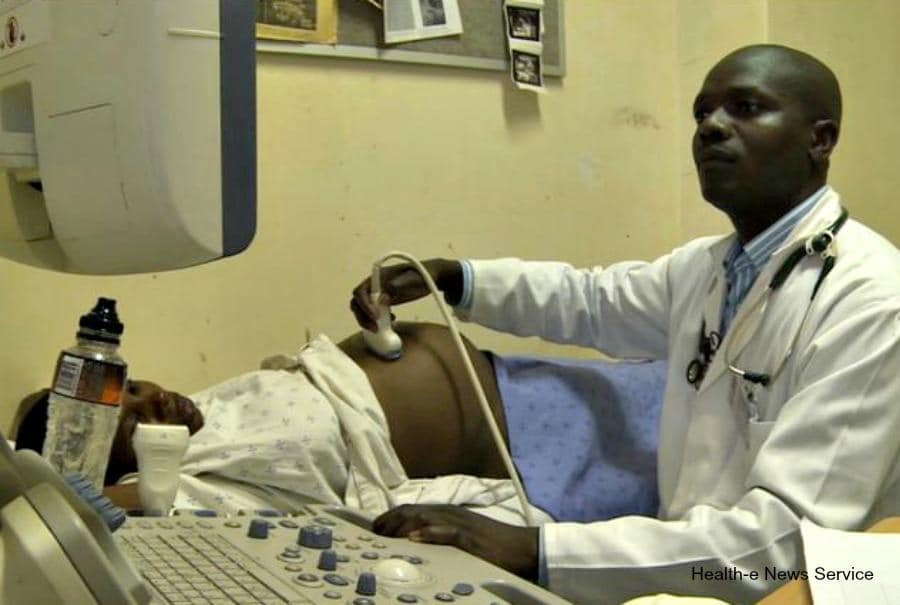#Covid19SA creates two-month healthcare gap for moms-to-be

The National Income Dynamics Study – Coronavirus Rapid Mobile Survey conducted telephone surveys that focused primarily on access to vaccinations, antiretroviral therapy and antenatal care by pregnant women and women with infants in the public sector.
The survey spoke to 7 074 adults, and of the sample gathered, about 16% of pregnant women and mothers of infants in the public sector have not been to the clinic for two months as a result of Covid-19.
Covid-19 fear keeps patients away
The survey also found that 11% of mothers who use public healthcare services and are on antiretroviral therapy have run out of their treatment. The fear of contracting Covid-19 was a major driving factor for most people not seeking or accessing their medication.
The pregnant women and mothers of infants reported to had last visited a clinic or hospital in April when they were questioned. It also found that 1-in-4 women whose babies needed key vaccinations had not been to the clinic for the over two months.
Furthermore, the survey revealed that sexual reproductive services also faced a decline. About 23% of the people surveyed said that they could not access medication, contraceptives or condoms over 4 weeks.
Around 4% of chronic patients did not seek the care that they needed, while around 22% of people who needed acute care, like surgery, did not seek care in fear of catching Covid-19.
Closing the gaps
In order to fill the delayed access to healthcare services that were caused by the Covid-19 pandemic, experts who complied recommend that the state contracts private sector GPs to help support the added demands in primary care.
The report also proposes that more community healthcare workers need to deploy to link people to healthcare services. Government should also increase the capacity of programmes such as the centralised chronic medicines dispensing and distribution to cover a wider range of medications and not limit it to a few chronic ailments.
The survey suggest that government look at setting up a helpline for those who are at risk of being without treatment and also investigate the cost of using fear to motivate social behavioural changes in its Covid-19 prevention messaging.– Health-e News.
Author
Republish this article
This work is licensed under a Creative Commons Attribution-NoDerivatives 4.0 International License.
Unless otherwise noted, you can republish our articles for free under a Creative Commons license. Here’s what you need to know:
You have to credit Health-e News. In the byline, we prefer “Author Name, Publication.” At the top of the text of your story, include a line that reads: “This story was originally published by Health-e News.” You must link the word “Health-e News” to the original URL of the story.
You must include all of the links from our story, including our newsletter sign up link.
If you use canonical metadata, please use the Health-e News URL. For more information about canonical metadata, click here.
You can’t edit our material, except to reflect relative changes in time, location and editorial style. (For example, “yesterday” can be changed to “last week”)
You have no rights to sell, license, syndicate, or otherwise represent yourself as the authorized owner of our material to any third parties. This means that you cannot actively publish or submit our work for syndication to third party platforms or apps like Apple News or Google News. Health-e News understands that publishers cannot fully control when certain third parties automatically summarise or crawl content from publishers’ own sites.
You can’t republish our material wholesale, or automatically; you need to select stories to be republished individually.
If you share republished stories on social media, we’d appreciate being tagged in your posts. You can find us on Twitter @HealthENews, Instagram @healthenews, and Facebook Health-e News Service.
You can grab HTML code for our stories easily. Click on the Creative Commons logo on our stories. You’ll find it with the other share buttons.
If you have any other questions, contact info@health-e.org.za.
#Covid19SA creates two-month healthcare gap for moms-to-be
by Nelisiwe Msomi, Health-e News
July 29, 2020
MOST READ
No water no vote: Hammanskraal still doesn’t have clean drinking water a year after cholera outbreak
Cough syrup recall: What is diethylene glycol and what happens when you drink it?
Patients wait months for surgery at Leratong hospital as non-payment shuts down theatres
Hunger and mental health: study looks at how families cope with food insecurity
EDITOR'S PICKS
Related

An injection to prevent HIV in women is a “game-changer” say researchers

Lockdown and Covid-19 risk affected Soweto residents’ mental health, study shows

